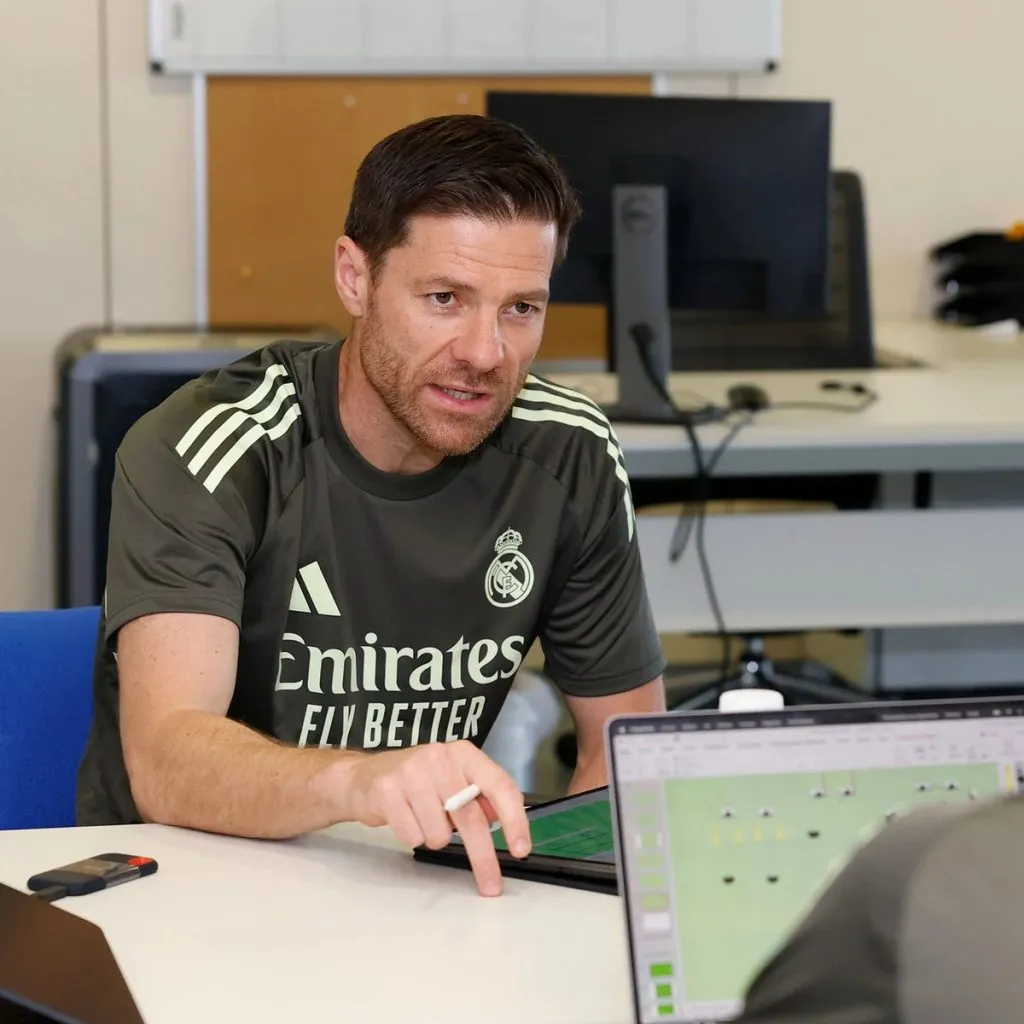Real Madrid’s preparations for the highly anticipated FIFA Club World Cup have taken a serious turn as newly appointed manager Xabi Alonso has made it clear that discipline, intensity, and tactical commitment will be non-negotiable pillars under his leadership.
With just days remaining before their tournament opener in the United States, Alonso has laid down strict rules—and two of the club’s biggest stars are already in the spotlight.
The former midfield maestro, who recently returned to the Santiago Bernabéu to take over the reins from Carlo Ancelotti, has wasted no time in stamping his authority. According to a detailed report by Cadena SER, Alonso has addressed the entire squad with a message that leaves no room for complacency: any player who fails to press, run, or contribute defensively will not play, regardless of their stature or market value.
This message, although directed at the entire squad, has reportedly been emphasized with particular reference to the attacking duo of Kylian Mbappé and Vinícius Júnior. The two forwards, known for their electrifying pace and flair in the final third, will now be expected to work just as hard off the ball if they want to remain regular starters.
Sources close to the club reveal that Alonso has already spoken privately with both players, making it clear that his tactical system requires full team involvement—especially in transitions. Those who fail to contribute defensively risk losing their spots, no matter how many goals they score.
This firm approach from Alonso reflects the seriousness with which he is approaching the Club World Cup, which Real Madrid are aiming to win for a record-extending sixth time. The tournament, which features elite clubs from different continents, will not only serve as a litmus test for Alonso’s tactical blueprint but also as a stage to assess the commitment of each player to the collective cause.
Alonso, who gained widespread acclaim for his coaching stints at Real Sociedad B and Bayer Leverkusen, has a reputation for discipline, tactical clarity, and team cohesion. Now at the helm of one of the world’s most decorated clubs, he appears determined to bring those values to the heart of the Madrid dressing room.
Insiders also suggest that the squad has responded with a mix of admiration and alertness. While many players have welcomed the clarity and ambition Alonso has brought, others are fully aware that their starting positions are no longer guaranteed. Every training session is now a proving ground.
Real Madrid will begin their Club World Cup campaign on Wednesday, June 18, with a clash against Al-Hilal of Saudi Arabia. The group also includes Austria’s Red Bull Salzburg and Mexico’s Pachuca—clubs known for their athleticism and structured pressing, which makes Alonso’s demand for collective defensive effort all the more relevant.
Should Real Madrid progress beyond the group stage, they are likely to face tougher opponents from South America and Europe in the knockout rounds. Alonso’s warning, therefore, is not just about preparation—it’s about setting a tone that could carry into the 2025–26 season.
One key figure in Alonso’s coaching ideology is pressing from the front. The modern game demands that forwards initiate defensive actions, and Alonso, who excelled at reading the game during his playing days, understands the importance of structure without the ball. A passive forward line is a tactical liability in his system.
This philosophy marks a significant shift for stars like Mbappé, whose previous roles in France and PSG have offered more freedom from defensive duties. At Real Madrid under Alonso, that luxury no longer exists. Even Vinícius, despite his brilliant individual displays, will be expected to track back, press intelligently, and contribute to regaining possession.
Alonso’s firm stance could also serve as a defining moment in his early days as Real Madrid’s manager. By holding even the most celebrated stars accountable, he is sending a message to the entire squad: this is a new era, and it will be built on collective effort, discipline, and mutual respect.
Interestingly, this approach echoes the ethos of previous great Madrid managers like Zinedine Zidane, who also demanded tactical obedience alongside attacking expression. But Alonso, known for his deep football intellect, is determined to take things a step further—by embedding a relentless pressing identity into Madrid’s DNA.
Fans and pundits alike will be watching closely to see how players respond, especially in the opening matches of the Club World Cup. Alonso’s gamble—demanding more from his stars—could either unify the team and lead to success, or spark tensions if results falter. However, early signs suggest the squad understands the gravity of the challenge ahead.
For Real Madrid, this Club World Cup is more than just a tournament—it’s the first page of a new chapter under one of the most intelligent minds in football. If the players buy into Alonso’s vision, the rewards could be enormous. If not, even the biggest names could find themselves on the bench.
In the meantime, supporters can expect a more organized, intense, and strategically mature Real Madrid team to step onto the pitch on June 18. And if Alonso’s words are anything to go by, every minute will be earned—not gifted.
Whether it’s Mbappé, Vinícius, or any other Galáctico, one thing is certain: under Xabi Alonso, reputation means nothing without responsibility.


